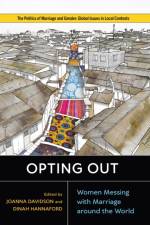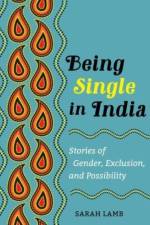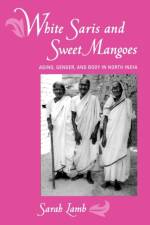- Stories of Gender, Exclusion, and Possibility
av Sarah Lamb
409
"This pathbreaking book offers a vital analysis of the rising-but-unrecognized category of single women in marriage-minded societies such as India. Through beautifully rendered, diverse stories of never-married women, Being Single in India challenges conventional wisdom and is essential reading for anthropologists, sociologists, and those interested in gender in the Global South."--Marcia C. Inhorn, William K. Lanman, Jr. Professor of Anthropology and International Affairs, Yale University "This lively ethnographic account of the experiences of never-married women makes several key contributions to feminist anthropological appraisals of marriage as an institution. Drawing on in-depth interviews and extensive exercises in participant observation, Sarah Lamb renders a compelling, detailed, and sensitive portrait of compulsory heterosexuality and patriliny as seen from the margins."--Lucinda Ramberg, Associate Professor of Anthropology and Feminist, Gender, and Sexuality Studies, Cornell University "For fans of Lamb's evocative narratives on Bengali widows, her new book provides another rich look at the negative space of marriage: the rare demographic of single women in Bengal across class and caste. In the hands of an empathetic ethnographer, we see how they provide care and are cared for (or not), we see their routines and sacrifices and longings but also their laughter and aspirations and resilience, and we see the heartfelt new communities they form outside of biological kin. Being outside of marriage is not devastating or ruinous, it turns out, but reveals the vulnerabilities of shelter and support and the privileges of sexuality, gender, and class."--Srimati Basu, author of The Trouble with Marriage: Feminists Confront Law and Violence in India "This compelling ethnography offers an extraordinarily fruitful perspective on gender, family, kinship, patriliny, patriarchy, and class in India's dominant cultures. With engaging writing and captivating narratives, Lamb uncovers never-married women's own critiques of and reflections on dominant norms. Her focus is, essentially, entirely new in South Asian studies. It offers fresh insights into the realities of family lives, complicating the notion of the ideal Indian family, and her interlocutors' accounts reveal new insights about women and kinship."--Sara Dickey, author of Living Class in Urban India



















